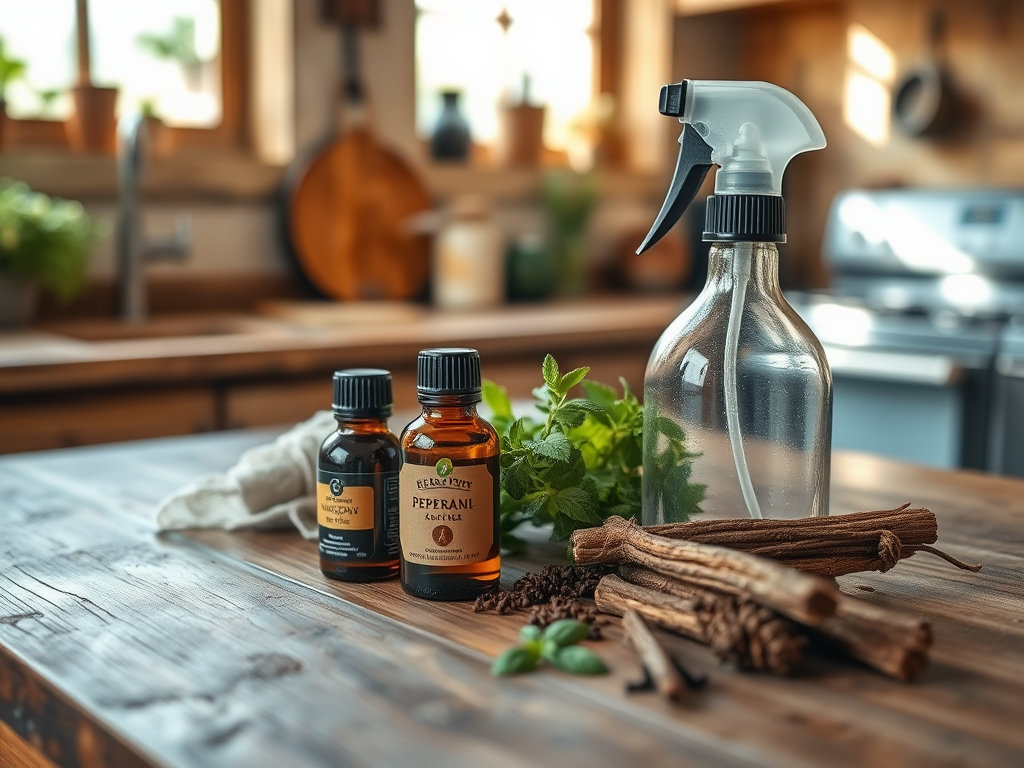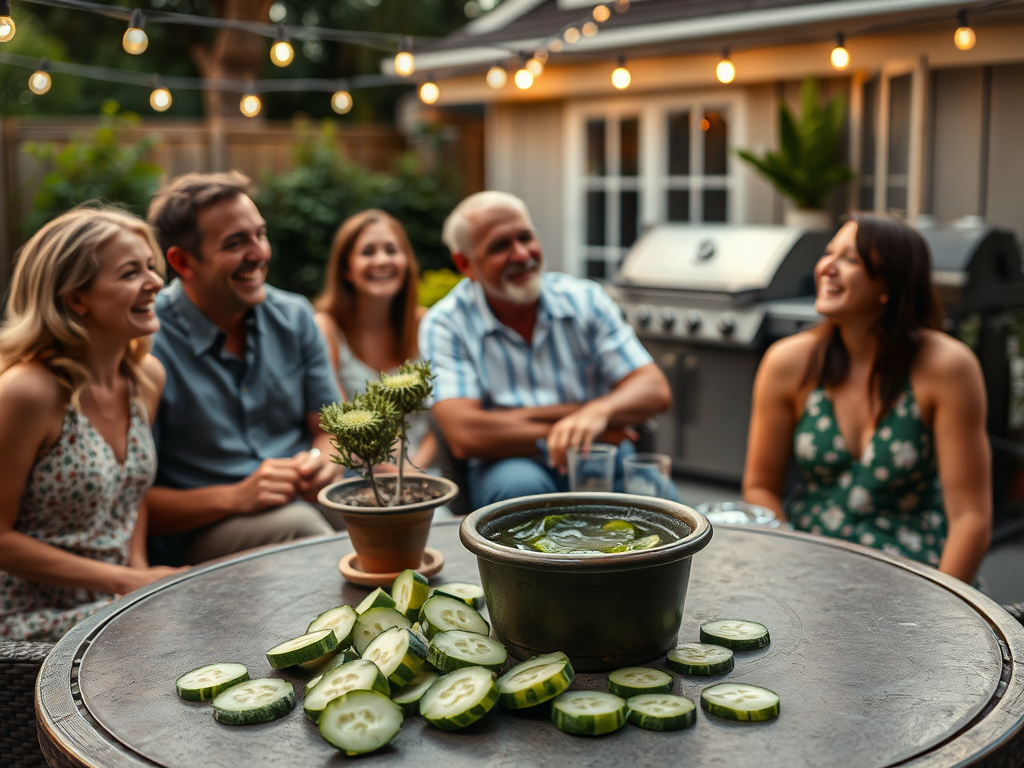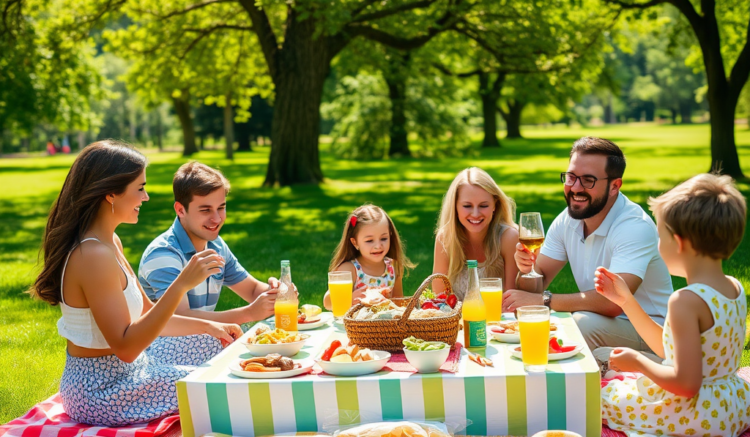As summer arrives, outdoor gatherings, picnics, and barbecues become highlights of the season. However, the joy of dining al fresco can swiftly diminish when you’re confronted by a swarm of wasps. These pesky stingers often turn up uninvited, drawn by the aromas of food and sweetness. While they play a role in our ecosystem, their presence can be both unsettling and hazardous. Fortunately, there are numerous natural deterrents that can keep wasps at bay without relying on harsh chemicals. By integrating a mix of these natural solutions into your outdoor routine, you can enjoy a peaceful summer environment and reclaim your outdoor spaces.
Understanding wasp behavior is crucial in the effective use of deterrents. Wasps are industrious insects that primarily seek protein and sugary substances during the warmer months. Their aggressive nature tends to escalate later in the summer, making it essential to act proactively. Keeping this in mind allows for the identification of key strategies that can ward them off. Furthermore, utilizing natural deterrents not only protects your yard but also emphasizes a commitment to eco-friendliness in your home environment.
Understanding Wasps and Their Behavior

Wasps have a reputation that precedes them, often viewed as aggressive pests that ruin outdoor fun. The truth is, they are merely following their instincts to find food and build their colonies. For those planning a beautiful outdoor event, recognizing what attracts wasps is fundamental. They are particularly fond of foods rich in sugars and proteins, leading to their presence around barbecues, picnic spots, and fruit-laden gardens. Knowing these factors helps inform the types of deterrents that will work effectively. The key is to outsmart these crafty creatures by making your surroundings less appealing.
Why Choose Natural Wasp Deterrents?

Natural wasp deterrents stand out as the preferred choice for those mindful of health and the environment. Chemical pesticides can pose risks not only to wasps but also to beneficial pollinators and the ecosystem at large. By opting for natural alternatives, one can implement effective strategies while maintaining ecological balance. Furthermore, these solutions are often more cost-effective and easy to prepare, drawing from items likely already in your pantry. In addition, many natural deterrents offer dual benefits, enhancing the ambiance of your outdoor space while keeping pests at bay.
Effective Natural Wasp Deterrents
Essential Oils
Essential oils present a potent option for deterring wasps. Scents like peppermint, clove, and geranium are particularly effective. The oils can be mixed with water to create sprays that drive wasps away from areas where you gather. Not only do they provide relief from pests, but they also leave behind a pleasant aroma. Here’s how to effectively use these essential oils:
- Peppermint Oil: Mix 1 tablespoon of peppermint oil with 2 cups of water in a spray bottle. Shake well and spray around dining areas.
- Clove Oil: Combine 2 teaspoons of clove oil with a cup of water. Spray it liberally in the garden or near piquantly fragrant items.
- Geranium Oil: Use a teaspoon of geranium oil mixed with water to create another effective repellent spray.
Vinegar Traps
Vinegar, particularly apple cider vinegar, serves a dual purpose: it acts as a lure and a trap for wasps. When mixed with other ingredients, it becomes an effective weapon against these pests. Creating your own vinegar trap is easy and a great way to utilize items from your kitchen. You can set several traps around your outdoor space to maximize effectiveness. Below is a simple recipe for a vinegar trap:
| Ingredients | Measurements | Instructions |
|---|---|---|
| Apple Cider Vinegar | 1 cup | Pour into a container or jar. |
| Water | 1 cup | Mix with vinegar in the container. |
| Dish Soap | 1-2 drops | Add to mixture; this helps trap wasps. |
Cucumber Slices
Interestingly, wasps have a hearty dislike for cucumbers. This vegetable not only serves as a healthy snack but also acts as a natural repellent. Placing fresh cucumber slices around seating areas can effectively keep wasps at bay. The freshness of the cucumber creates an uninviting atmosphere for these pests. Consider this simple approach when planning your next outdoor event. It’s a win-win situation for both your taste buds and your peace of mind!
Cinnamon and Bay Leaves
Using common kitchen spices, such as cinnamon and bay leaves, can help change the appeal of your outdoor space. The scents emitted from these spices make the environment uninviting for wasps. Simple methods include scattering ground cinnamon or placing whole bay leaves in areas known for wasp activity. It’s an effortless and aromatic way to reduce the chances of an encounter. This method can also leave a pleasant scent outdoors, enhancing your experience as well.
Preventive Measures
Effective wasp deterrents are only part of the solution; preventive measures are just as crucial. Maintaining cleanliness and a wasp-unfriendly atmosphere can significantly reduce their presence. Here are some key preventive strategies:
- Keep Food Covered: Always ensure that food is covered to prevent attracting wasps during outdoor activities.
- Seal Nests Early: If you spot a wasp nest on your property, tackle it early in the season when they are smaller and less aggressive.
- Clean Up: Regularly clean outdoor eating areas to eliminate food scraps and spills that could attract wasps.
Conclusion
Natural wasp deterrents provide a holistic, effective strategy for keeping these pests away. By understanding their behavior and deploying various natural methods in your routine, you can truly enjoy your outdoor spaces without fear. Simple yet powerful deterrents, such as essential oils and vinegar traps, allow you to minimize the presence of wasps while remaining environmentally conscious. By incorporating preventive measures alongside these solutions, you can help create a wasp-free summer that allows for carefree enjoyment of your outdoor activities. So, get ready to reclaim your space and enjoy those outdoor gatherings.
Frequently Asked Questions
- Are natural wasp deterrents effective? Yes, natural deterrents can effectively keep wasps away when used routinely and in conjunction with preventive measures.
- What essential oils are best for repelling wasps? Peppermint, clove, and geranium oils are the most effective in deterring wasps due to their strong scents.
- Can vinegar traps kill wasps? Yes, vinegar traps can lure and capture wasps, helping to reduce their numbers in your area.
- How can I prevent wasps from coming to my outdoor events? Keeping food covered, promptly cleaning up spills, and using deterrent methods will help keep wasps away during outdoor gatherings.
- Is it safe to use these natural deterrents around pets? Generally, natural deterrents like essential oils and vinegar are safe for pets. However, always monitor your pets and consult with a veterinarian if you have concerns.
